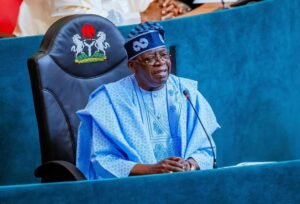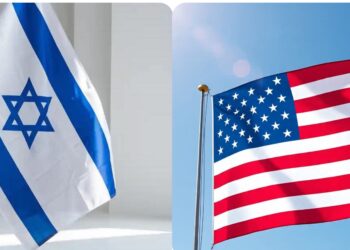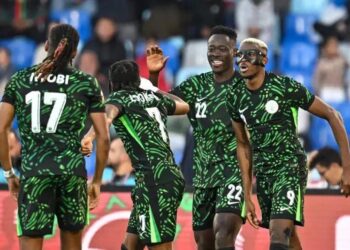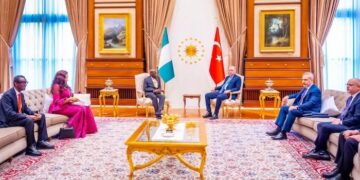
By Ibrahim Kegbegbe
In the history of Nigerian democracy, few political trajectories have been as contested, misunderstood, and ultimately triumphant as that of President Bola Ahmed Tinubu. The 2023 presidential election was not just another national contest—it was a referendum on Tinubu’s political relevance, resilience, and resourcefulness. Against all odds, and with minimal institutional support, Tinubu emerged victorious in what many now view as the ultimate test of political capacity. If that victory was a dress rehearsal, then 2027 may already be a concluded script.
President Tinubu stands apart as perhaps Nigeria’s first leader to have walked the arduous path to power largely unaided—without a political godfather, without a national consensus, and without the traditional power blocs that usually determine who gets to sit at Aso Rock. His story is a departure from the predictable scripts that have defined leadership emergence in Nigeria.
No Godfather, No Traditional Support
No political kingmaker, cabal, or regional bloc can credibly claim to have installed Tinubu. In fact, the road to his presidency was strewn with betrayals from many who once stood closest to him.
In the Yoruba Southwest, high-profile leaders such as Chief Ayo Adebanjo of Afenifere opposed him. Former President Olusegun Obasanjo, himself a political heavyweight, openly campaigned against him. Even his own political protégés, like Rauf Aregbesola and Yemi Osinbajo, broke ranks. Lagos, Tinubu’s political base, and Osun, his ancestral state, voted against him.
READ ALSO:Tears in Eti-Osa as Renowned Islamic Scholar Sheikh AbdulMumin Oniwasi Dies at 80
His supposed Yoruba constituency was, at best, lukewarm in support. The widespread propaganda and disinformation campaigns targeting him particularly swayed the youth, resulting in notable electoral losses even in strongholds.
The Southeast and South-South Rejection
The Igbo-dominated Southeast was even more hostile. His campaign faced virulent opposition, amplified by narratives of regional marginalization. Despite being in the same party, figures like Senator Orji Uzor Kalu and Dr. Chris Ngige kept their distance. In the South-South, support from figures like Asari Dokubo and Governor Nyesom Wike couldn’t translate into a sweeping electoral advantage.
Northern Ambivalence
In the North, where political loyalty often determines electoral outcomes, Tinubu faced shocking setbacks. He lost Kaduna, the domain of Governor Nasir El-Rufai, and even Katsina, the home state of then-President Muhammadu Buhari. The Fulani political establishment did not throw its weight behind him, and the much-feared political cabal was conspicuously absent or even hostile during the campaign period.
Institutional Sabotage and Economic Hardship
As if political opposition wasn’t enough, the institutions of the Nigerian state appeared to conspire against Tinubu’s candidacy. The Central Bank’s naira redesign policy led to widespread cash scarcity. Fuel queues resurfaced. Power outages became more frequent. University students sat idle due to protracted ASUU strikes. All these crises coincided with the election period, creating an environment of public frustration with the incumbent APC administration—a government Tinubu was campaigning to succeed.
Religious Resistance
Then came the most divisive issue: religion. The Muslim-Muslim ticket drew intense criticism. Prominent Christian leaders, including Bishop David Oyedepo and Pastor Paul Enenche, vehemently opposed him. The Redeemed Christian Church of God, through its influential followers, gave no overt support. The Middle Belt, largely Christian, rejected him. Religion, instead of uniting the electorate, became a weapon against his candidacy.
An Unlikely Ally: Peter Obi’s Obidients
Perhaps the greatest irony of the 2023 election was the unintended impact of Peter Obi and his fervent supporters. Their zeal inadvertently split the opposition, fracturing the traditional PDP stronghold and clearing a path for Tinubu’s victory. It is a testament to the proverb that God can use even adversaries to fulfill a purpose.
A Presidency with No Political Debt
What makes Tinubu’s victory more remarkable is that he ascended the presidency with no political debt. No region, no godfather, no coalition can claim ownership of his success. This independence may well position him as one of Nigeria’s most transformational leaders—free to make bold decisions without the burden of appeasing entrenched interests.
READ ALSO:Tinubu Attends Inauguration of Pope Leo XIV, Meets Pontiff in Vatican
A Look to 2027
With the 2023 victory achieved under extreme adversity, many political observers believe that the 2027 re-election campaign, if pursued, may be a far simpler task. As a sitting president with demonstrated resilience and control of the political machinery, the odds now favor Tinubu—provided his administration delivers on key national expectations.
Asiwaju Bola Ahmed Tinubu’s journey to the presidency was not forged through the familiar paths of godfatherism, ethno-religious consensus, or institutional support. It was shaped in the crucible of adversity. Whether or not one supports his policies or politics, one must acknowledge the magnitude of what he achieved in 2023. Tinubu is not just the “Jagaban of Borgu”—he may well be the Jagaban of African politics.

















